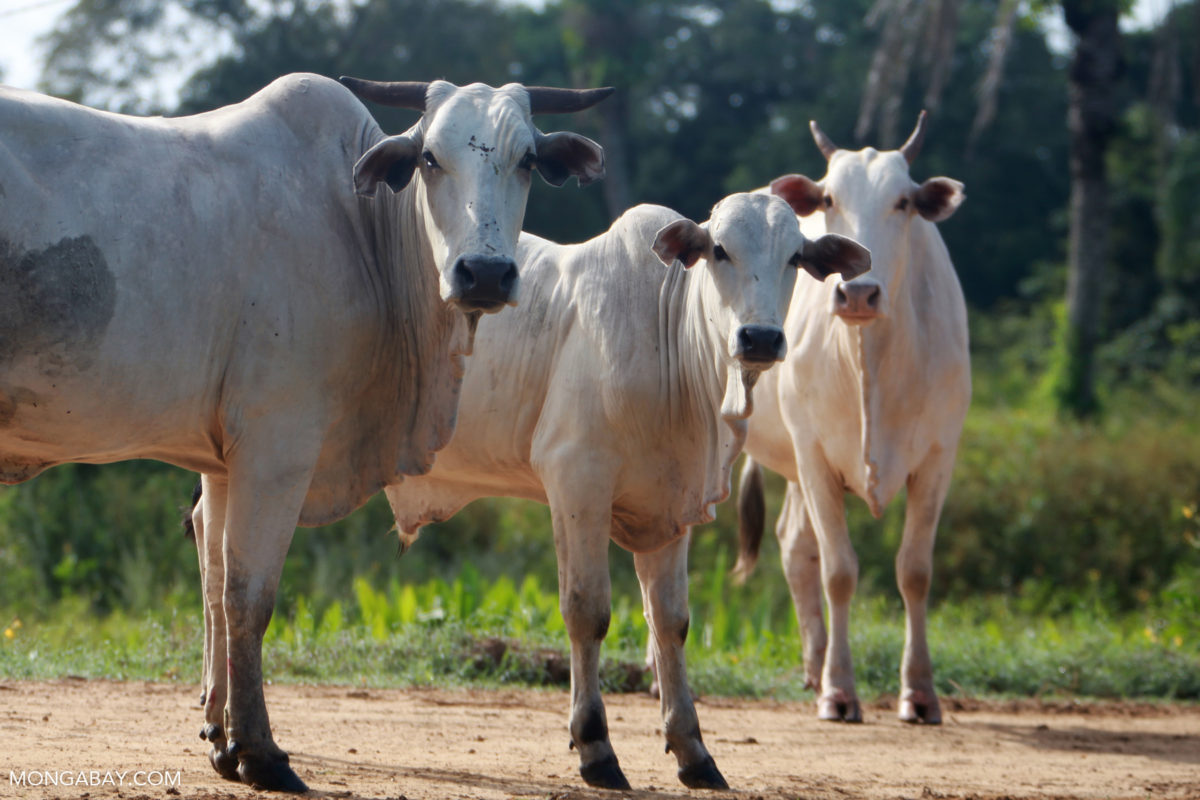Since the early 1970s, environmental groups have spent billions of dollars on conservation efforts in the Amazon, but have failed to slow the destruction of its rainforests – the Brazilian Amazon has lost more than 700,000 square kilometers (270,000 square miles) of forest in that time. As donor dollars poured into the region, deforestation rates continued to climb, peaking at 73,785 square kilometers (28,488 sq mi) of forest loss between 2002 and 2004, before falling sharply in 2005 and 2006 due to declining commodity prices. To many, it’s become apparent that the market, not conservation measures, will determine the fate of the Amazon.
The reasons for land-clearing in the Amazon are compelling: cheap land, low labor costs, and booming demand for commodities driven by a surging China and growing interest in biofuels. These factors have helped Brazil become an agricultural superpower – the world’s largest exporter of beef, cotton, and sugar, among other products – in less than a generation. Amazon landowners have seen their land values double every 4-5 years in areas that just a decade ago were pristine rainforests. The market is driving deforestation.
Given this landscape, John Cain Carter believes the only way to save the Amazon is through the market. Carter is a Texas rancher who moved to the heart of the Amazon 11 years ago with his Brazilian wife, Kika, and founded what is perhaps the most innovative organization working in the Amazon, Aliança da Terra. Carter says that by giving producers incentives to reduce their impact on the forest, the market can succeed where conservation efforts have failed.
While deforestation rates in the Amazon have accelerated, the problem is not a lack of laws, but rather a legal system where enforcement is so slow and so corrupt that it renders the laws effectively useless. On paper, cattle ranching in the Amazon may be the most restricted in the world, with landowners required to keep 80 percent of their land forested – a limitation no rancher in Texas faces. Carter wants to see farmers in Brazil benefit in following the law, by turning this restriction into a marketing advantage. However in order to do so, Amazon producers have to ensure that consumers ( i.e., buyers of commodities like McDonalds, Wal-Mart, and Cargill) can confidently say that agricultural products are produced legally and even more sustainably than stipulated by the law. The incentive for producers is market access: Aliança da Terra helps Brazilian farmers and ranchers get the best price for their products, but only if they follow the rules. While producers get higher prices for their goods, buyers like Burger King and Archer-Daniels Midland can say they are using legally and responsibly produced beef. Meanwhile more rainforest is left standing, ecosystem services preserved, and biodiversity conserved. Everybody wins.
Accountability has other benefits. Aliança da Terra’s growing clout even helps fight corruption – officials know they can’t solicit bribes from Aliança’s members while members know that passing bribes will only get them kicked out of the system. The promise of Aliança da Terra is so great that conservation groups and landowners are sitting down at the same table, when just two years ago they were the most bitter of adversaries – a substantial achievement and one that bodes well for the success of these efforts.
What is most remarkable about Aliança’s system is that it has the potential to be applied to any commodity anywhere in the world. That means palm oil in Borneo could be certified just as easily as sugar cane in Brazil or sheep in New Zealand. By addressing the supply chain, tracing agricultural products back to the specific fields where they were produced, the system offers perhaps the best market-based solution to combating deforestation. Combining these mechanisms with large-scale land conservation and scientific research offers what may be the best hope for saving the Amazon.
In a June interview with mongabay.com Carter explains his experiences in Brazil and his approach to saving Earth’s largest and most important rainforest.

